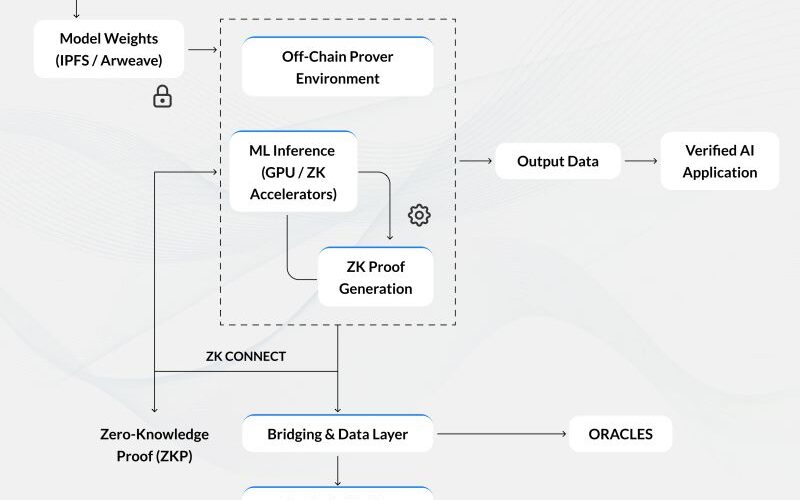The Challenge of Verifying Computation
We always talk about decentralizing computation, but nobody discusses the hardest part: verifying it.
There’s growing interest in performing machine learning inference directly on-chain. The idea is compelling: run predictions, classifications, or decisions in a fully transparent and verifiable environment.
But blockchains are designed for deterministic, lightweight computation. Running ML inference involves:
-
Large matrix multiplications
-
Nonlinear activations
-
Complex data transformations
All of which are computationally expensive and result in prohibitively high gas costs.
ZKML: A Practical Solution
Instead, a more practical approach is emerging: Zero-Knowledge Machine Learning (ZKML).
This method allows model inference to be executed off-chain in specialized environments, followed by a zero-knowledge proof that confirms the computation was performed correctly.
With ZKML, the burden shifts from blockchain to external infrastructure while maintaining verifiable integrity:
-
The blockchain validates the proof, not the full inference
-
Inputs, model weights, and intermediate computations remain private
-
Computation happens where hardware and scalability make sense
From Theory to Practice
ZKML is not theoretical anymore. Several research teams and projects are actively building frameworks that make verifiable off-chain inference practical, aiming to bridge the gap between trustless systems and computational complexity.
The Bigger Picture: AI + Blockchain
As blockchain interfaces more with AI-driven applications, the solution won’t be doing everything on-chain.
It will be about layered, specialized architectures combining:
-
Off-chain compute
-
On-chain proofs
This hybrid model allows scalability, privacy, and verifiability to coexist.
Open Question
How do you see ZKML fitting into production systems over the next couple of years?







